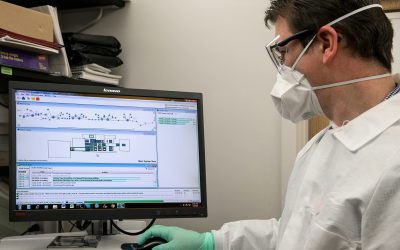To improve and support their services, the healthcare sector has been quick to incorporate a variety of technology developments. As a result of these technological developments, hospitals now have more job openings. Artificial intelligence, telemedicine, and electronic health records are three innovations that have completely changed the healthcare sector. Learn more about the employment opportunities that are available in these industries and which ones might be the best for you by reading more about them.
Opportunities abound!
Electronic Health Records (EHR)
One of the most significant technological advancements in hospitals is the adoption of electronic health records (EHRs). EHRs are digital versions of patients’ medical records, including their medical history, diagnoses, medications, and treatment plans. The use of EHRs has led to a significant reduction in medical errors, improved patient outcomes, and streamlined healthcare operations.
EHRs have created new job opportunities in hospitals, such as EHR implementation specialists, EHR trainers, EHR analysts, and EHR support technicians. These professionals are responsible for implementing and maintaining the EHR system, training healthcare staff on how to use the system, and providing technical support to ensure that the EHR system runs smoothly. Many EHR type jobs are remote offering much-desired flexibility to potential employees.
Telehealth
Telehealth is another technology that has transformed the healthcare industry. Telehealth involves the use of technology to provide remote healthcare services, connecting patients to services that would otherwise be unavailable. Telehealth became increasingly popular due to the COVID-19 pandemic, which has forced hospitals to find new ways to provide healthcare services while minimizing in-person contact.
Telemedicine has increased the number of employment options available to hospitals, including those for telehealth coordinators who plan virtual healthcare services and telehealth nurses who deliver patient care remotely. Moreover, skilled telehealth IT specialists are needed. These professionals guarantee that the telehealth system is operational so that doctors can focus on patients rather than the technology. An applicant for an IT position in telemedicine should be motivated and good at addressing problems.
Artificial Intelligence (AI)
Artificial intelligence (AI) is another technology that has and will continue to transform the healthcare industry. AI can be used to analyze large amounts of patient data to identify patterns and trends that can be used to improve patient outcomes. AI can also be used to develop predictive models that can help healthcare providers make informed decisions about patient care.
New positions in hospitals have been made possible by AI, including those in AI data analysts, AI software engineers, and AI healthcare strategists. These experts are in charge of creating AI-powered healthcare applications, analyzing patient data using AI algorithms, and creating long-term strategies for integrating AI into healthcare. Working together is essential in these roles.
Conclusion
As the healthcare industry continues to evolve, hospitals will need to adopt new technologies to provide high-quality patient care. New technologies will create new job opportunities, and healthcare professionals who are willing to adapt to tech developments will be well-positioned to take advantage of these new opportunities. Reach out to Engage and partner with us to reimagine what is possible.









